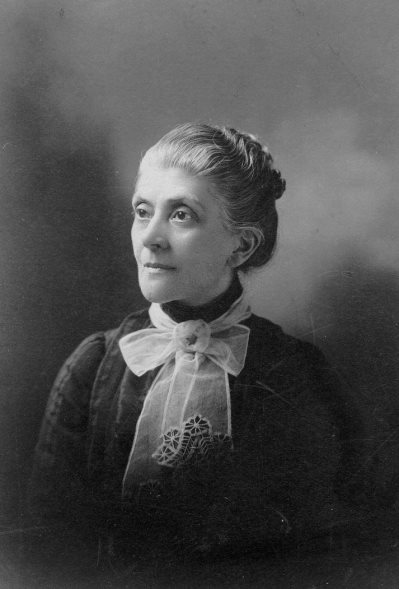Historian Robert Wilson explains how aid societies pioneered by Nova Scotia woman Maria Norris in the 1870s supported women missionaries and funded international outreach.
In 1870, a group of Maritime Baptist women banded together to start a growing movement to fund overseas missions. The movement began with Hannah Maria Norris, who began missionary aid societies where women met to learn about missions and pray for and communicate with those they supported.
Their “butter and egg money,” as Acadia Divinity College scholar Miriam Ross put it, provided the means for women to support missions and go abroad as missionaries themselves.
Hannah Maria Norris was born in 1842 in Canso, N.S., with a Roman Catholic father and Congregational mother. Raised a Protestant she received an advanced education at the Provincial Normal School in Truro.
She taught school in Canso and ministered to a nearby Mi’kmaq community. In 1868, two years after becoming a Baptist, she met missionaries Arthur Ralph Crawley and Laura Crawley at the Grand Pré Seminary in Wolfville. They were home on furlough from Burma (now Myanmar).
Norris offered herself to the Baptist Convention of Nova Scotia, New Brunswick and Prince Edward Island for service in Burma. The denomination declined because money was tight and she was an unmarried woman. 
Norris had boarded a ship for Boston to offer herself to the American Baptist Missionary Union when Edward Manning Saunders, pastor of a Halifax church, suggested she reapply to the Convention and seek the support of women in the churches. She got off the ship and, beginning at her home church in Canso, organized a Woman’s Baptist Missionary Aid Society on June 18, 1870. Two months later there were 32 societies in Nova Scotia and New Brunswick. The societies raised the necessary money and Norris left for Rangoon on Sept. 21, 1870 to begin a lifetime of missionary service.
The movement Norris started became known as missionary aid societies. “There was something creative and dynamic about the movement directed by Maria Norris; it appealed to the imagination, enkindled an enthusiastic interest in missions,” George Levy writes in The Baptists of the Maritime Provinces in 1946.
The Baptist women of the Maritimes had achieved a remarkable level of education (the New Brunswick Baptist Seminary in Fredericton was the first co-education post grade school in the British Empire). Many of these women became teachers. Now, by uniting their efforts, they were inspired to aim for missionary service. Levy adds, “Miss Norris’ movement provided [a religious outlet] and before long, a group of remarkable women, whose gifts could not have been fully employed in any other form of Christian service, had been organized under its direction.”
Before the formation of the aid societies in 1870, the Maritime Baptists struggled to raise sufficient funds to send missionaries overseas. But in May 1875, after extensive negotiations, the Foreign Mission Board recommended to the Convention that they join the Missionaries of the Board of Ontario and Quebec and work together among Telugus in southern India.
Thirty-five years later the Canadian Baptist Foreign Mission Board was created. That so much was accomplished in such a short time was due in large part to the foundation of the aid societies. Maritime Baptist missions were transformed by the direct involvement of these women.
Norris married William Armstrong in 1874. She ended her relationship with Maritime Baptists in 1880 so she could return to Burma and the school she had founded. She was active there until her husband died in 1918. In raising funds, she corresponded with the Rockefellers, a Baptist millionaire family, and wrote widely in journals and newsletters. In 1888 she was the only woman to speak at a plenary session of the London Missionary Conference. Norris remained a strong advocate for women and women’s roles in missions throughout her life.
Robert Wilson was dean and professor of history at Atlantic Baptist College (Crandall University) for 20 years and Acadia Divinity College for 28 years. He has written widely on Atlantic and Canadian Baptist history. A version of this article was originally published in the March 2020 issue of Tidings. Read more like this at FaithToday.ca/HistoryLesson.
Photo used by permission of the Baptist Image Collection (accession no. D1900.039/590) in the Atlantic Baptist Archives at Acadia University.